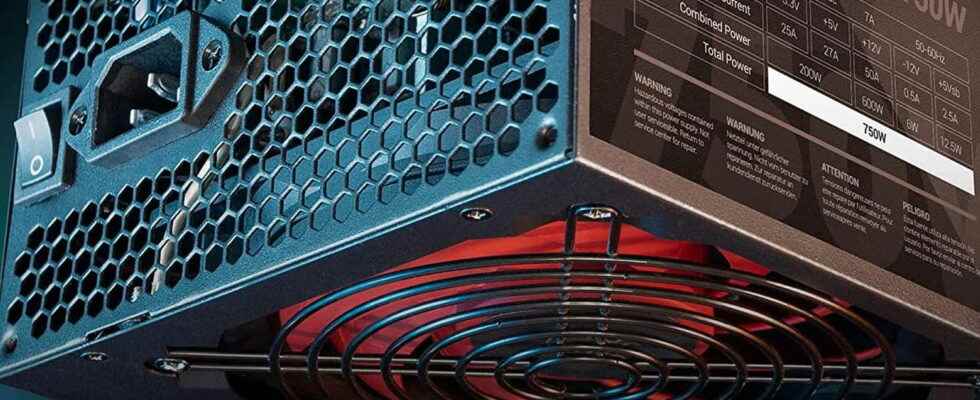Are you installing a new fixed PC or are you changing certain components such as the processor or the graphics card? Be sure to calculate the wattage of the power supply required for your configuration.
It is not always easy, when you decide to build your own computer, or to upgrade the components it contains, to estimate the necessary electrical power that the PC power supply (or PSU) must develop. in English, for Power Supply Unit) so that everything works in good conditions. Each component must benefit from the electrical power essential to its function and it is also necessary to leave a margin to counter any peaks in consumption or the possible addition of components later. By applying a simple calculation rule, it will be easy for you to estimate the wattage of the power supply you will need. You can also rely on calculators available on many websites. By providing information about your equipment, you can quickly estimate the equipment you need.
As a general rule, a PC’s power supply should not exceed 80% load to avoid the risk of overheating while still retaining some headroom. Here’s how to do a quick calculation.
- Start by identifying the maximum consumption (in watts or W) of the processor (CPU) as well as that of the graphics processor (GPU). You can find this information on the website of their respective manufacturers. Then apply the following rule:
Max CPU consumption + 2x max GPU consumption.
- Take the case of a PC equipped with an Intel Core i7-8750H processor and an nVidia RTX 2060 graphics processor.
The maximum Core i7-8750H consumption is 45 W, that of the GTX 2060 is 220 W. The calculation then looks like this: 45 + (2 x 220) = 485.
A minimum power supply of 485 W is recommended for this configuration. A 500 W power supply will then be ideal, and will leave enough margin to upgrade the machine.
- The maximum consumption of the graphics card is multiplied by two, which on the one hand compensates for the low consumption of the other components, and on the other hand leaves a margin of safety. This method is easy and effective, and avoids investing in an oversized power supply.
- Warning: this calculation method does not work for a configuration comprising several graphics cards.
What is the power consumption of the components of a PC?
To refine the estimate of the electricity consumption of your PC and to choose your power supply precisely, here are some references of the power required by the main components of a PC.
- Processor (CPU) and graphics processor (GPU) are the most greedy in a computer. Refer to the information provided by their manufacturers available on their websites.
Motherboard: 20 to 40 W
Memory (Ram): 10 W per module
PCI-E card: 5 to 10 W
PCI Network Card: 5W
PCI audio card: 15W
Reader-burner (CD-DVD-BluRay): 10 to 25 W
Hard drive 5400 rpm: 5 to 10 W
Hard drive 7200 rpm: 10 to 15 W
Hard disk 10,000 rpm: 10 to 30 W
SSD: 0.1 to 3W
Case fan: 3W
Processor fan (CPU): 3 W
Where can I find power calculators online?
Many websites offer free estimates of the electrical power that the PC’s power supply must deploy according to the components it embeds. The information is given as an indication, each computer taking a safety margin to avoid possible glitches by aiming too accurately. Here are a few.
This calculator (in English) is available in two versions: one for experts, the other for all those who simply want to estimate their electricity consumption by providing information on a few components. The safety margin is around 20 to 30%.
In English, this calculator provides a fairly accurate estimate of power consumption depending on the components present. Remember to disable your ad blocker to access the form.
The manufacturer offers a very simple calculator and in French dedicated to its machines. It is based on a short list of processors and graphics card.
NewEgg Power Supply Calculator
A simple and fast electricity consumption calculator based on essential component data.
